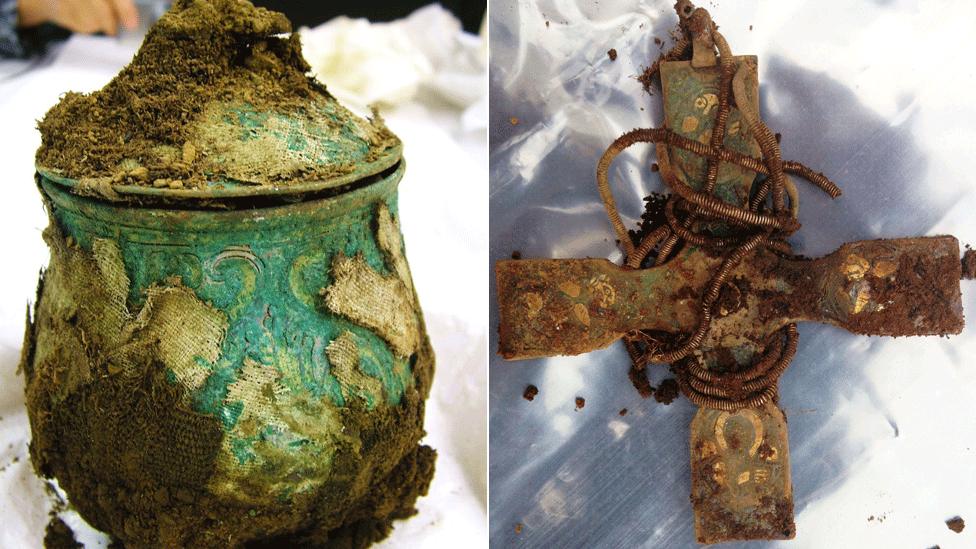Galloway Viking treasure bids weighed up
- Published
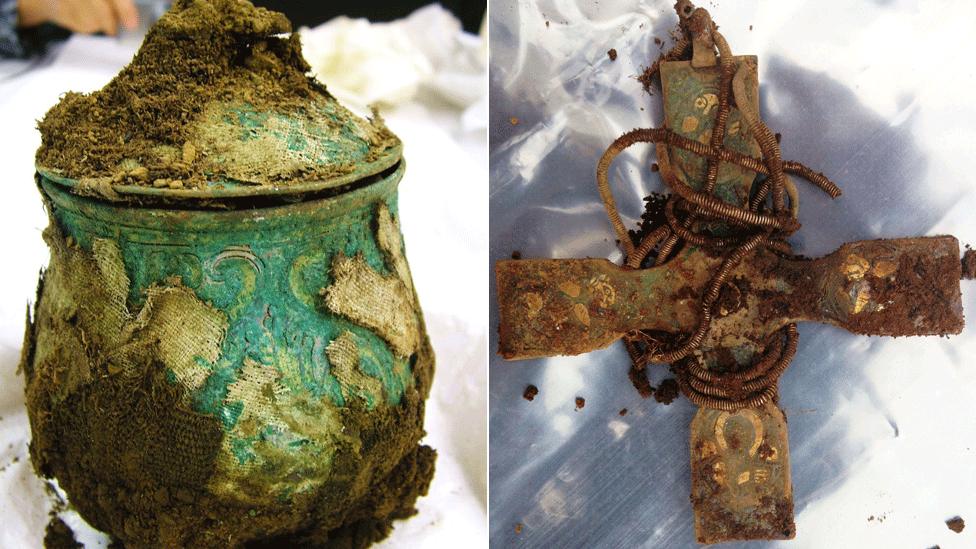
A panel will recommend where the Galloway Viking hoard should end up
An expert panel has met to help decide where a Viking treasure hoard discovered in southern Scotland should be permanently housed.
Both Dumfries and Galloway Council and National Museums Scotland are bidding for the artefacts.
The Scottish Archaeological Finds Allocation Panel has met to discuss the hoard's future.
It will make a recommendation on where the treasure should go to the Queen's and Lord Treasurer's Remembrancer.
The find was made by a metal detectorist in south west Scotland in 2014.
Dumfries and Galloway Council wants to house the hoard in a new art gallery being built in Kirkcudbright.
Their bid has been backed by a local campaign which delivered a 5,000 signature petition to the Scottish Parliament earlier this week.
They have both argued that the treasure should be returned to the region where it was found.

Key moments in the hoard's story
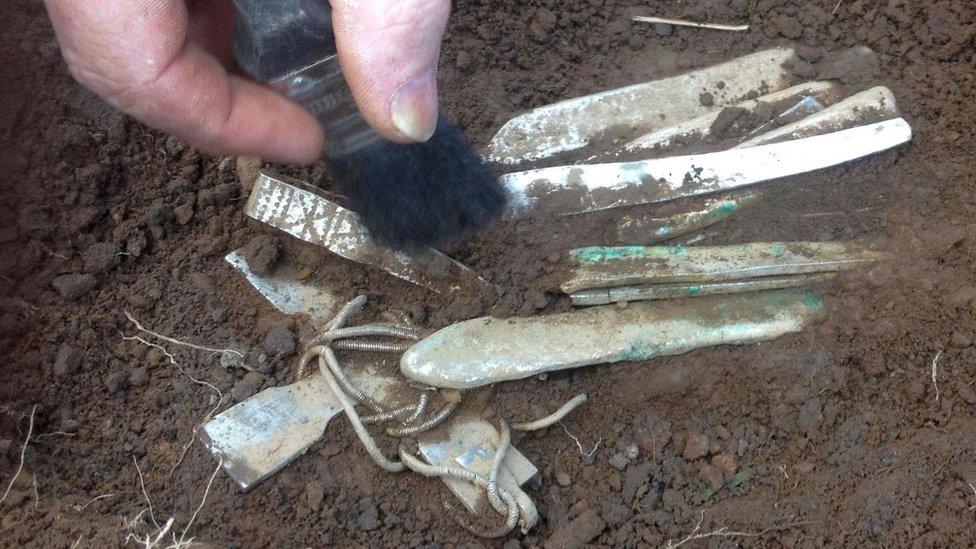
The treasure was unearthed in 2014 by a metal detectorist in Dumfries and Galloway
October 2014 - a Viking treasure haul is unearthed in Dumfries and Galloway
November 2014 - A hospital X-ray reveals the contents of a 9th Century bronze pot found in the hoard
June 2015 - A bid to house the treasures in Kirkcudbright takes shape
March 2016 - Images of the contents of a pot of Viking treasure are revealed
February 2017 - A new campaign is launched to ensure the hoard ends up in Kirkcudbright
March 2017 - The Galloway Viking hoard's finder criticises the delay in its allocation
March 2017 - Dumfries and Galloway Council says it is no closer to agreement with National Museums Scotland
March 2017 - National Museums Scotland voices its disappointment at the council's stance

It had been hoped a joint bid could be agreed with NMS but that has proved impossible.
NMS said it believed it had put forward a proposal which benefitted both organisations.
It would see some of the hoard go on display permanently in Kirkcudbright and, on occasions, the entire collection hosted in the town.
However, no agreement has been reached between the two bodies and it will now be up to the SAFAP to make a recommendation.
It assesses the applications according to a number of criteria with a presumption that they should be allocated locally unless a "convincing argument" for placing it elsewhere can be made.
Other factors taken into account include:
the national importance of the find
the need to keep a collection together in one place
special conservation requirements
the potential to maximise public access
research possibilities
security
the views of the finder
If an organisation bidding to host a hoard disagrees with the recommendation made by the panel it can make a case for it to be reconsidered.
That would result in the case being deferred for further consideration at a future meeting.
- Published21 March 2017
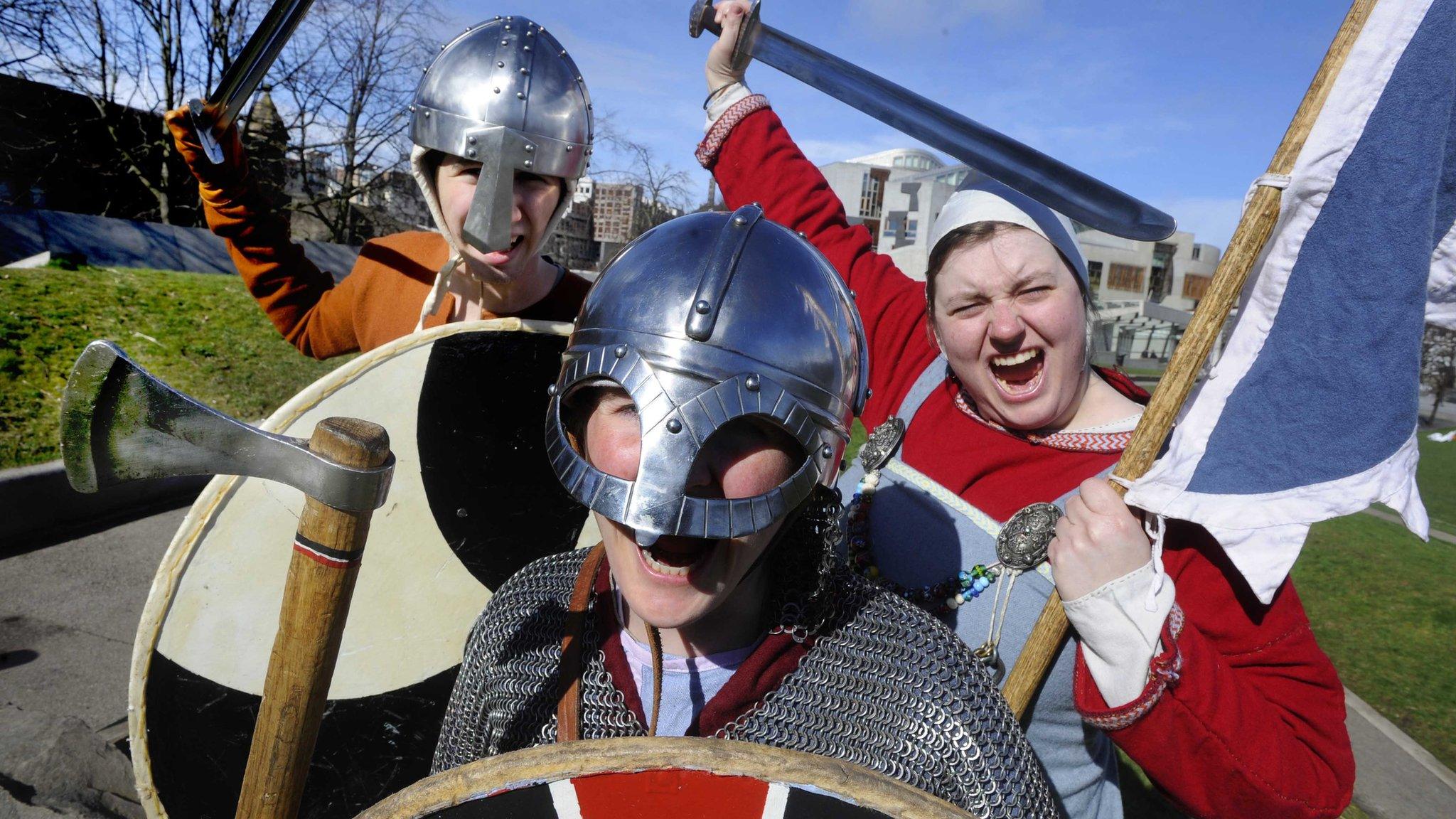
- Published9 March 2017
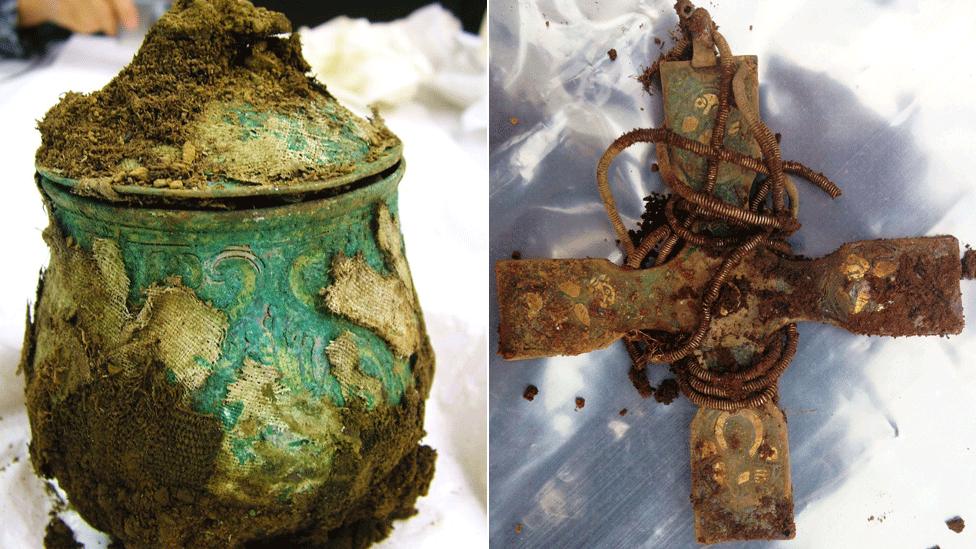
- Published9 February 2017
